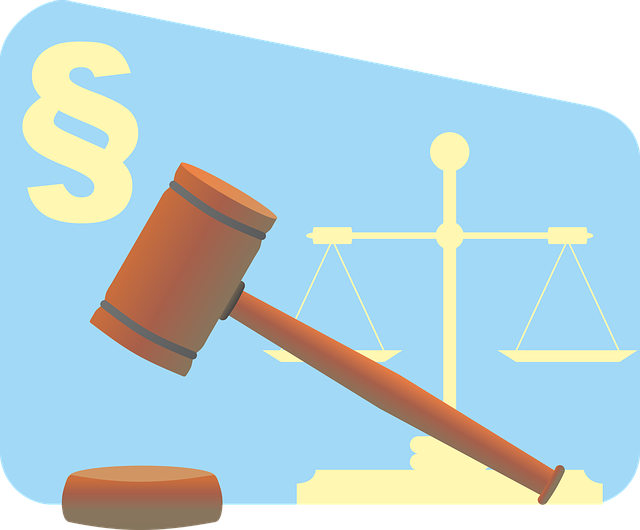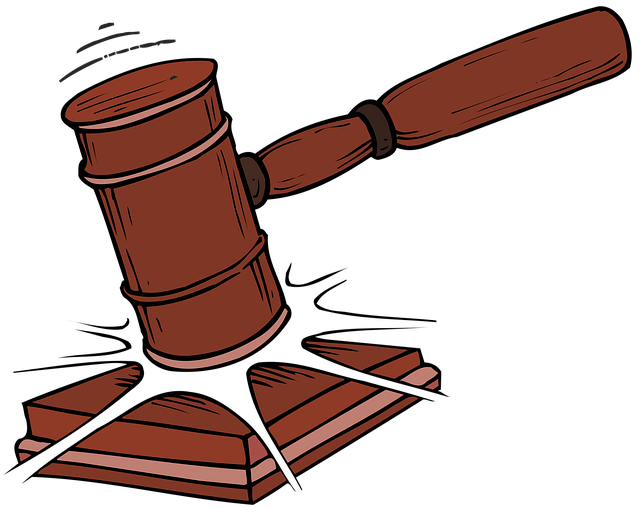RF Regulatory Agency (RFRA) investigations ensure RF standards and address violations. Class Action Lawsuits represent collective efforts for widespread harm, aiming for complete charge dismissals; Individual Lawsuits focus on specific claims with tailored strategies. RFRA investigates systemic violations leading to potential class actions, prioritizing RF safety and security alongside economic crimes. The choice between lawsuits impacts business consequences and consumer protection, requiring strategic approaches for compliance and swift resolution during investigations.
“RF Regulatory Agency Investigations: A Comprehensive Guide explores the intricacies of how these agencies operate, focusing on their investigative powers and the implications for businesses and consumers. We delve into the differences between class action and individual lawsuits in the context of RF regulations, offering insights to help companies navigate potential scrutiny.
Learn about the scope of investigatory powers, the impact on industries, and strategic approaches to mitigate risks. By understanding these dynamics, organizations can better prepare for, and respond to, regulatory inquiries.”
- Understanding RF Regulatory Agency Investigations
- Class Action vs Individual Lawsuits: Key Differences
- Investigatory Powers and Their Reach
- Implications for Businesses and Consumers
- Strategies to Navigate RF Regulatory Scrutiny
Understanding RF Regulatory Agency Investigations

RF Regulatory Agency Investigations play a critical role in ensuring compliance with radio frequency (RF) standards and regulations. These investigations can range from routine checks to thorough probes into alleged violations, including potential misconduct or non-compliance by manufacturers, distributors, and users of RF devices. When considering the outcomes, it’s essential to distinguish between a class action lawsuit and an individual lawsuit. A class action involves multiple affected parties suing collectively, while an individual lawsuit is brought forth by a single party.
In the context of RF investigations, understanding these legal distinctions is crucial for several reasons. For instance, a successful class action lawsuit can lead to a complete dismissal of all charges against the accused, demonstrating the power of collective action in achieving justice and extraordinary results. Conversely, individual lawsuits often focus on specific claims and may not always result in such sweeping dismissals. The strategic selection between these approaches depends on various factors, including the nature of the alleged violation and the interests of those involved.
Class Action vs Individual Lawsuits: Key Differences

When it comes to RF Regulatory Agency investigations, the choice between a Class Action Lawsuit and an Individual Lawsuit plays a significant role in the outcome of legal proceedings. While both avenues can lead to justice, they operate on fundamentally different principles. A Class Action Lawsuit involves a group of individuals united by a common issue or injury, allowing for collective representation and the potential for larger damages if successful. This approach is particularly effective in high-stakes cases where many people have suffered similar harm due to RF exposure.
In contrast, Individual Lawsuits focus on the experiences of specific individuals who have been affected. Each plaintiff files a separate case, emphasizing personal injury or damage. While this method may not yield as substantial collective compensation, it offers more control over the legal strategy and can be beneficial for avoiding indictment in cases where liability is complex or contested. Jury trials are often central to both types of lawsuits, with the decision-making process relying on the collective judgment of jurors to determine liability and award damages accordingly.
Investigatory Powers and Their Reach

The RF Regulatory Agency (RFRA) possesses robust investigatory powers to ensure compliance with radio frequency (RF) standards and regulations. These powers extend across various domains, enabling RFRA to probe into potential violations, from manufacturing defects to unauthorized transmissions. When conducting investigations, RFRA leverages a blend of internal expertise and external collaboration, delving into complex scenarios involving both corporate and individual clients.
The agency’s investigatory reach is significant, capable of handling not just isolated incidents but also systemic issues that might warrant a class action lawsuit versus the more common individual litigation. This capacity to tackle white-collar and economic crimes showcases RFRA’s unprecedented track record in upholding RF safety and security standards.
Implications for Businesses and Consumers

RF Regulatory Agency investigations can have significant implications for both businesses and consumers. For businesses, being at the center of such an inquiry can be a complex and costly affair. Depending on the severity of the violation alleged, companies may face hefty fines, product recalls, or even legal action from affected customers. A Class Action Lawsuit Vs Individual Lawsuits is a common outcome, with consumers banding together to seek collective damages for similar experiences. This can lead to prolonged legal battles, straining resources and potentially damaging brand reputation.
However, these investigations also offer an opportunity for businesses to demonstrate their commitment to compliance and customer safety. A winning challenging defense verdict in jury trials can turn the tide, showcasing the company’s proactive approach and ability to navigate regulatory complexities. For consumers, the outcome can provide relief and set a precedent for future protection against similar misconduct, ensuring safer products and services across the market.
Strategies to Navigate RF Regulatory Scrutiny

Navigating RF Regulatory Agency investigations requires a strategic approach, especially considering the potential impact on businesses and individuals alike. One key distinction to understand is the difference between a Class Action Lawsuit and an Individual Lawsuit. In the former, a regulatory agency may target a company for widespread non-compliance, aiming to compensate numerous affected parties. This can be a game-changer for businesses as it involves significant financial repercussions and public exposure. Conversely, individual lawsuits focus on specific instances of misconduct, with potential remedies tailored for each client.
For his clients involved in high-stakes cases, particularly those encompassing white collar and economic crimes, employing robust internal controls, maintaining meticulous records, and fostering a culture of compliance is paramount. These strategies can serve as a shield against regulatory scrutiny, demonstrating due diligence and good faith efforts to adhere to RF regulations. Promptly addressing any discrepancies or concerns during investigations can also mitigate potential penalties and damage to reputation.
RF Regulatory Agency investigations encompass a wide range of powers, impacting businesses and consumers alike. Understanding the nuances between class action vs individual lawsuits is crucial for navigating these inquiries effectively. While class actions offer collective redress, individual lawsuits provide tailored solutions, each with its own implications. Businesses should employ strategic responses, such as proactive compliance measures, to mitigate risks and ensure RF regulatory scrutiny aligns with their best interests and consumer protection.






